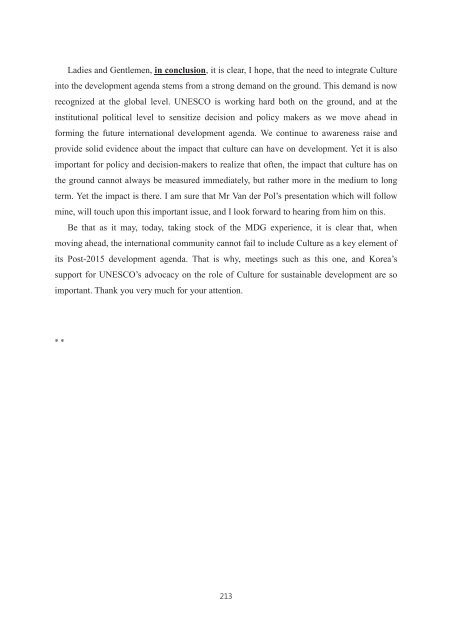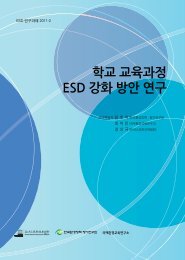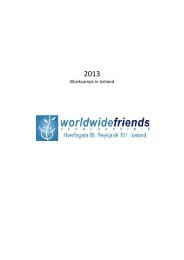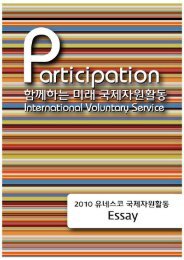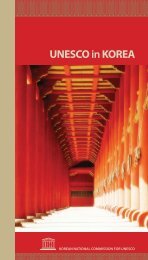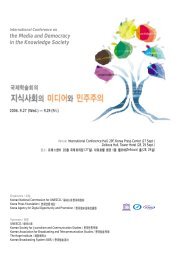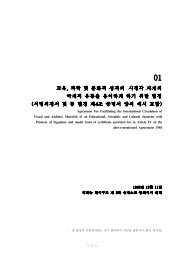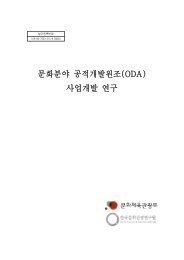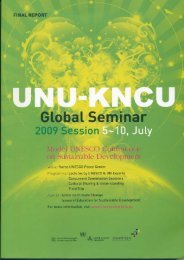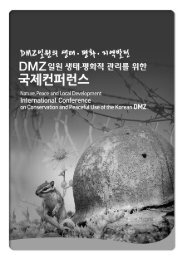íëìë³´ë2012문íì ë°ì ë¼ì´ëí ì´ë¸.pdf - ì ë¤ì¤ì½íêµììí
íëìë³´ë2012문íì ë°ì ë¼ì´ëí ì´ë¸.pdf - ì ë¤ì¤ì½íêµììí
íëìë³´ë2012문íì ë°ì ë¼ì´ëí ì´ë¸.pdf - ì ë¤ì¤ì½íêµììí
Create successful ePaper yourself
Turn your PDF publications into a flip-book with our unique Google optimized e-Paper software.
Ladies and Gentlemen, in conclusion, it is clear, I hope, that the need to integrate Culture<br />
into the development agenda stems from a strong demand on the ground. This demand is now<br />
recognized at the global level. UNESCO is working hard both on the ground, and at the<br />
institutional political level to sensitize decision and policy makers as we move ahead in<br />
forming the future international development agenda. We continue to awareness raise and<br />
provide solid evidence about the impact that culture can have on development. Yet it is also<br />
important for policy and decision-makers to realize that often, the impact that culture has on<br />
the ground cannot always be measured immediately, but rather more in the medium to long<br />
term. Yet the impact is there. I am sure that Mr Van der Pol’s presentation which will follow<br />
mine, will touch upon this important issue, and I look forward to hearing from him on this.<br />
Be that as it may, today, taking stock of the MDG experience, it is clear that, when<br />
moving ahead, the international community cannot fail to include Culture as a key element of<br />
its Post-2015 development agenda. That is why, meetings such as this one, and Korea’s<br />
support for UNESCO’s advocacy on the role of Culture for sustainable development are so<br />
important. Thank you very much for your attention.<br />
* *


